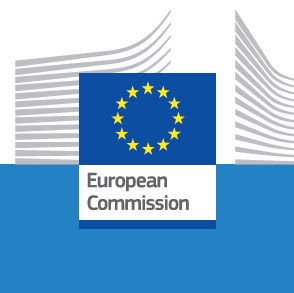CETA: EU and Canada agree on new approach on investment in trade agreement

This agreement is a clear break from the current ISDS system and shows the commitment to work together to establish a multilateral investment tribunal.
The European Commission and the Canadian Government have agreed to include a new approach on investment protection and investment dispute settlement in the EU-Canada Comprehensive Economic and Trade Agreement (CETA).
The negotiations on a free trade deal between the European Union and Canada were concluded in 2014 with a reformed investment dispute settlement system, notably with full transparency of proceedings and clear and unambiguous investment protection standards.
Following the legal revision of the text, the agreement now reached goes even further. All the main elements of the EU’s new approach on investment, as outlined in the EU’s TTIP proposal of November 2015 and contained in the recently concluded EU-Vietnam free trade agreement, have been included in the finalised CETA text.
This represents a clear break from the old Investor to State Dispute Settlement (ISDS) approach and demonstrates the shared determination of the EU and Canada to replace the current ISDS system with a new dispute settlement mechanism and move towards establishing a permanent multilateral investment court. This revised CETA text is also a clear signal of the EU’s intent to include this new proposal on investment in its negotiations with all partners.
“I am very glad that we have been able to reach this agreement with our Canadian partners,” First Vice-President Frans Timmermans said. “With the changes we have agreed we bring CETA fully in line with our new approach on investment protection in trade agreements. In particular, we demonstrate our determination to protect governments’ right to regulate, and to ensure that investment disputes will be adjudicated in full accordance with the rule of law.”
“I’m delighted with this result,’ said EU Trade Commissioner Cecilia Malmström. ‘CETA takes on board our new approach on investment and its dispute settlement. By making the system work like an international court, these changes will ensure that citizens can trust it to deliver fair and objective judgements. We can confidently say that we’ve met the expectations of both the Member States and the European Parliament.”
The inclusion in CETA of the EU’s new approach to investment protection and investment dispute settlement was agreed in the context of the legal review of the text of the trade deal.
Besides the improved conditions on investment protection, CETA will offer EU firms better business opportunities in Canada and support jobs, by making business between the EU and Canada easier. The deal will remove 99% of customs duties, leading to tariff savings for EU exporters of around 470 million euro a year for industrial goods. It will end limitations in access to public procurement, making it possible for EU firms to bid for public contracts – at the federal level as well as in Canada’s provinces, regions and cities. CETA will open up the services market, making it easier for EU professionals to work in Canada. Canada also recognises the special status of the EU’s Geographical Indications, agreeing to protect a list of 145 European goods in Canada, such as Prosciutto di Parma and Schwarzwälder Schinken. A range of goods will have fewer administrative hurdles to jump, avoiding double-testing on both sides of the Atlantic, benefitting smaller companies in particular.
As part of its ongoing commitment to transparency, the European Commission has today published the legally scrubbed text of the agreement, including the agreed text on investment protection and investment dispute settlement. Once it has been translated into all EU official languages, it will be sent to the Council and the European Parliament for both institutions to debate its content and to decide on its approval.
As regards investment, the agreement includes:
- Stronger language on the right to regulate for all levels of government regarding investment protection.
- A clear break from the current ad hoc arbitration system to a permanent and institutionalised dispute settlement tribunal. The members of the tribunal will no longer be appointed by the investor and the state involved in a dispute but instead appointed in advance by the Parties to the agreement.
- More detailed commitments on ethics to avoid any conflicts of interest. Members of the tribunal and the appeal tribunal will, for instance, be barred from working as lawyers or experts in any other investment dispute.
- An appeal system comparable to that found in domestic legal systems, meaning that decisions will be checked for legal correctness and reversed where an error arises.
- The EU and Canada commit to join efforts with other trading partners to set up a permanent multilateral investment court with a standing appellate mechanism.
Source: European Commision





























